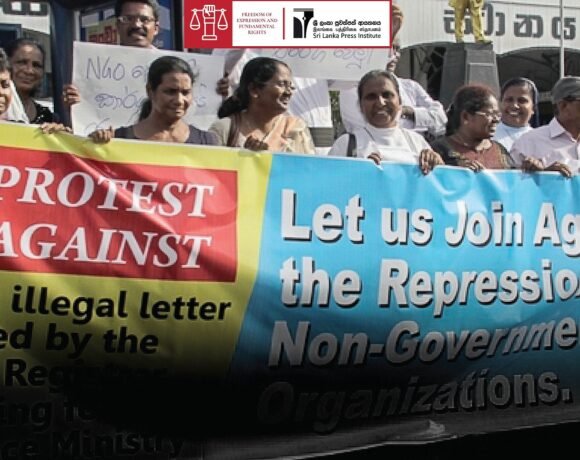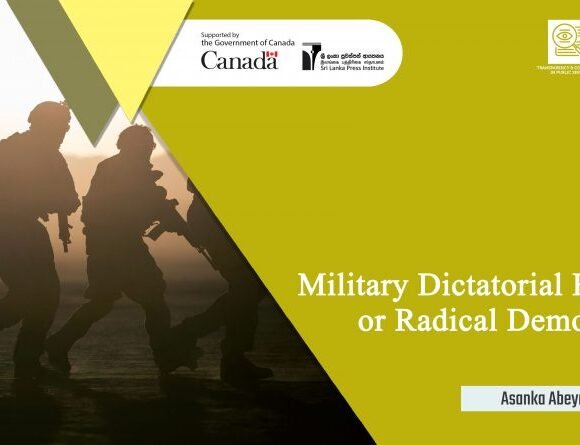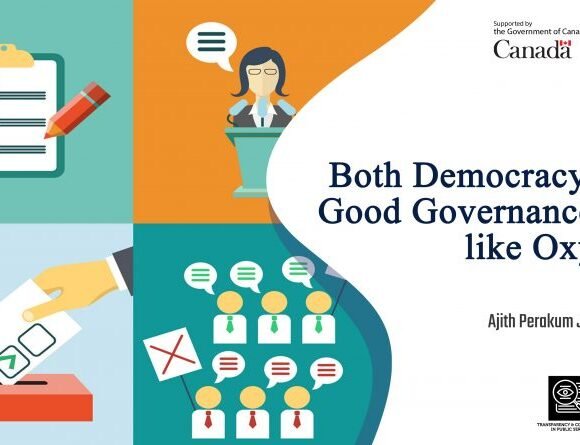
2019-2020: The Balance Sheet on Freedom of Expression
DHANUKSHA SILVA
Freedom House researchers have released an important report on Sri Lanka’s freedom of expression and its new trends for 2019 and 2020. Each year, a report is issued on each of the world’s democratic states, where researchers at Freedom House conduct preliminary inquiries into the actual nature of democracy being practiced in each country. According to the report, although the trend of censorship of online and social media by government intervention is good compared to 2018, Sri Lanka has not been able to make any positive progress in terms of freedom of expression in the 2019/20 year either.
Freedom of expression is generally regarded as the central right among other rights. As such, if freedom of expression is not qualitatively positive in a country, it negatively affects other rights as well. Accordingly, the report confirms that Sri Lanka as a whole has not been able to make significant progress in terms of democracy in the past year.
As per the report, there were two major obstacles that prevented freedom of expression from being fully exercised in Sri Lanka during the year. The first obstacle was faced by journalists, information seekers and social activists during the November 2019 Presidential Elections, who faced intense intimidation which lead to a culture of intimidation and self-censorship. The second is the self-censorship of major online platforms, information networks and content distributors by way of military intervention in the wake of the pandemic.Accordingly, the two latest challenges to freedom of expression were the tendency to be hostile to freedom of expression during the presidential election and the infiltrationof the military and state intelligence into civilian life on the basis of the COVID-19 pandemic.
The report concludes that emergency regulations issued from April 22 to August 2019, especially after last year’s Easter attacks, excessively restricted the right to freedom of expression.On April 22, a “competent authority” was appointed to oversee the contents of articles published in newspapers under emergency regulations. Based on this, content of an article published in a newspaper will be subject to “confiscation of the printing press, preventing the printing or distribution of the newspaper“, if the competent authority felt that “matters that could have caused riots and public unrest” were “published or may be published“. The power here was entirely vested in this competent authority.
Even moderate criticisms leveled against the government can be censored under emergency orders if the officer appointed as the competent authority acts purely in the interests of the President. In this sense, alternative media channels could be impacted more than mainstream media. This is due to the fact that the term ‘newspaper’ has been subjected to a broad definition in the Gazette making the boundaries of freedom of expression extend to areas beyond newspapers, such as a magazine or other publications. According to Freedom House, the gazette was the first document to block freedom of expression that year.
In addition, the report hints that Sri Lanka is slowly but surely moving towards an observer state. Unnecessary intrusion into the privacy of citizens by way of state intervention is said to have started softly during the last term of the previous “good governance government” (Yahpanalaya), and by November 2019 the Covid pandemic helped it reach a more acute point.
The past year was also marked by incidents such as the politicization of the country’s Telecommunications Regulatory Commission and the undermining of its independence as Sri Lanka’s identity an observer state first began to develop. The Telecommunications Regulatory Commission is an independent body that regulates the telecommunication process of Sri Lankan citizens. As such their purpose as an institution is to properly manage the freedom of expression of people using modern technology tools across service providers. President Maithripala Sirisena appointed his political ally P.R.S.P. Jayatilleke as the TRC’s chairman and in December 2019, President Gotabhaya Rajapaksa appointed Maj. Gen. Kamal Gunaratne as its new chairman, following the same example. Also, in a gazette notification issued in December 2019, the Telecommunications Regulatory Commission has been placed under the purview of the Ministry of Defense, which in turn is under the President himself. In this way, Freedom House sees Sri Lanka in a preparation to become an observer state by subordinating political appointments and the Telecommunications Regulatory Commission to the Ministry of Defense, where the President is Minister.
The year following the November 2019 Presidential Election marked Sri Lanka’s second growth year as an observer state. During the election, 78 journalists were subjected to intimidation, threats and self-censorship. The report also cites another report released by the Oxford Internet Institute in September 2019. According to the report, several government agencies, politicians and major political parties have been in contact with several cyber-groups with the intention of targeting the presidency. According to the Oxford Internet Institute, the primary role of these groups is to provide political interpretation of content on public social networks such as Facebook, Twitter, and YouTube. The report concludes that they have meticulously observed the voter’s behavior, political will, expectations, etc.
According to the report, the Covid 19 pandemic provided the third developmental opportunity to emerge here as an observer state. The state military and intelligence agencies in particular are using the pandemic to seize citizens’ personal information, monitor their behavior and scrutinize the whereabouts of people.
The Freedom House report concludes that even the 2015 Good Governance (Yahapalana) Government also contributed very little to Sri Lanka’s democracy as a whole. The partial success of the previous government in introducing political and constitutional reforms into practice, the reluctance to establish transitional justice principles in the post-war period and the constitutional crisis of October 26, 2018 have led to the transition of democratic approaches. These collective reasons contribute to the lowest democratic progress of the country in that time period.








